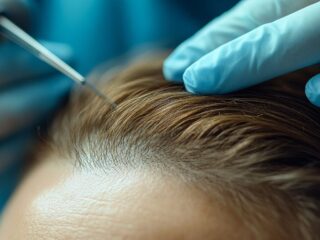
Sleep is a fundamental physiological process that plays a crucial role in maintaining overall health and well-being. During sleep, the body undergoes a complex series of restorative processes, including tissue repair, immune function regulation, and hormone secretion. Among these hormones, Human Growth Hormone (HGH) stands out as a key player in numerous physiological functions.
The relationship between sleep and HGH has garnered significant attention in recent years as researchers delve deeper into understanding the intricate interplay between these two factors. This pulsatile release of growth hormone during sleep plays a critical role in stimulating tissue growth, muscle repair, fat metabolism, and overall cellular regeneration.
In this comprehensive exploration of the link between sleep and HGH, we will delve into the mechanisms underlying this relationship, examine the factors that influence HGH secretion during sleep, and discuss the implications for overall health and well-being.
What is HGH?
Human growth hormone is a vital component produced by the pituitary gland. Beyond its growth-promoting abilities, HGH plays a critical role in maintaining overall health. It helps repair tissue, supports immune function, and influences energy levels. Adequate levels of growth hormone can contribute to a healthier body composition by increasing muscle mass and decreasing fat storage, underscoring the hormone’s significance beyond mere physical growth.
Growth hormone deficiency can result in growth disorders in children and lead to various health issues in adults, including decreased muscle mass, increased body fat, reduced bone density, and impaired cognitive function. When individuals have low levels of HGH, they may be prescribed HGH therapy, typically administered via subcutaneous injections.
The secretion of growth hormone is pulsatile, meaning it is released in bursts throughout the day, with the highest levels typically occurring during sleep. As such, many experts suggest that the perfect time to take HGH treatment is before bedtime. By taking HGH before sleep, individuals may enhance the body’s ability to absorb and utilize the hormone during the restorative sleep phase, maximizing its potential benefits.

When using HGH therapy, it’s crucial to follow the prescribed dosage and administration guidelines provided by healthcare professionals.
Does Sleep Affect Growth Hormone?
Sleep plays a crucial role in regulating various physiological processes in the body, including the production of human growth hormones. During sleep, the body goes through different stages of sleep cycles, each of which influences the secretion of HGH.
The sleep cycle consists of several stages, including light sleep, deep sleep, and REM (rapid eye movement) sleep. Each stage is characterized by distinct brain wave patterns and physiological changes.
The majority of HGH secretion occurs during deep sleep, also known as slow-wave sleep. During this stage, the body experiences restorative processes, including tissue repair, muscle growth, and bone regeneration. HGH plays a significant role in facilitating these processes by stimulating cell growth and regeneration.
Several factors can influence growth hormone production during sleep, including sleep quality, duration, and timing. Poor sleep quality or insufficient sleep can disrupt the natural secretion of HGH, leading to potential health issues.
What Factors Affect HGH Levels and Sleep?
Several factors can influence HGH levels and sleep quality, ultimately impacting overall health and well-being.
Age
HGH levels decline with age, leading to changes in sleep patterns and quality. Older adults tend to experience less deep, restorative sleep, which can affect growth hormone secretion during sleep.
Sleep Quality
The quality and duration of sleep directly impact HGH secretion. Deep, uninterrupted sleep, particularly during the early hours of the night, is associated with higher HGH levels. Conversely, disturbances in sleep, such as sleep apnea or insomnia, can impair HGH release.
Exercise
Regular physical activity, especially high-intensity exercise and strength training, can stimulate growth hormone secretion. Exercise promotes better sleep quality and can enhance the pulsatile release of HGH during sleep.
Nutrition
Dietary factors, such as protein intake and meal timing, can influence HGH secretion. Consuming protein-rich meals before bedtime may enhance nocturnal growth hormone release. Conversely, excessive carbohydrate intake or eating close to bedtime may blunt HGH secretion.
Stress
Chronic stress and elevated cortisol levels can disrupt the sleep-wake cycle and inhibit HGH secretion. Managing stress through relaxation techniques, mindfulness, and adequate rest can help support optimal growth hormone levels.
Sleep Environment
Creating a conducive sleep environment, characterized by darkness, quietness, and a comfortable temperature, can promote deeper sleep and enhance HGH secretion during the night.
Hormonal Imbalance
Imbalances in other hormones, such as insulin-like growth factor 1 (IGF-1), thyroid hormones, and sex hormones, can affect HGH levels and sleep quality. Addressing underlying hormonal issues may help optimize growth hormone secretion and sleep.
Medications and Supplements
Certain medications, such as glucocorticoids and opioid painkillers, can suppress HGH secretion and disrupt sleep.

Additionally, some supplements, like melatonin and certain amino acids, may support HGH release and improve sleep quality when taken appropriately.
Genetics
Genetic factors may influence individual variations in growth hormone secretion and sleep patterns. Understanding genetic predispositions can provide insights into personalized approaches to optimize growth hormone levels and sleep quality.
Lifestyle Habits
Healthy lifestyle habits, including maintaining a regular sleep schedule, limiting caffeine and alcohol consumption, and practicing relaxation techniques before bedtime, can support optimal HGH secretion and promote restful sleep.
By addressing these factors and adopting healthy lifestyle practices, individuals can support optimal HGH levels and improve sleep quality, leading to enhanced overall health and well-being.
Final Thoughts
The link between sleep and human growth hormone is a pivotal aspect of overall health and well-being. Understanding and nurturing this connection through healthy sleep habits and lifestyle choices can significantly impact physical development, tissue repair, metabolism, and even mood and cognitive function. As research continues to uncover the complexities of this relationship, it becomes increasingly clear that prioritizing sleep is not just about feeling rested—it’s about harnessing a vital component of physiological health and vitality.












